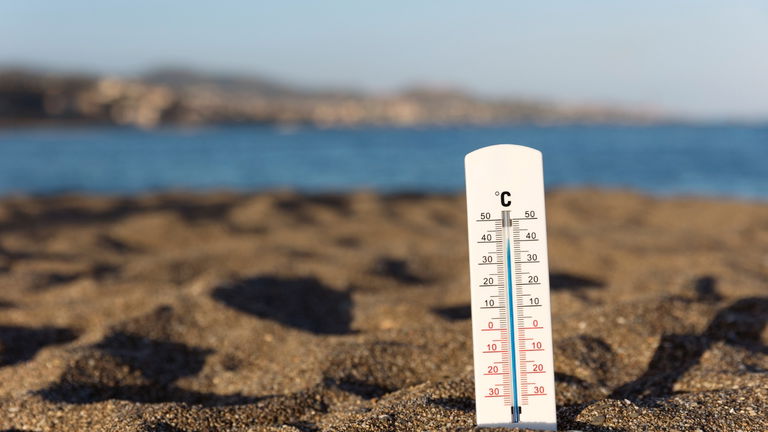"The life we have today on Earth is very complex and we're not clear why."
- The UPV/EHU researcher Kepa Ruiz-Mirazo (Gernika, 1970) has a double line of work. On the one hand, it tries to reproduce in the laboratories of the Biophysics Unit of Leioa the steps before the creation of life, and on the other, it reflects on what life itself is in the Research Group of Philosophy of Biology. His team is working with another from the University of Montpellier to look at how molecules came together to create life.

Your goal is to recreate the same factors as life. Have I said well?
We want to know which components were the first. If you think about how complex life is and the giant macromolecules it contains: DNA, RNA -- these are very large molecules that are difficult to generate. We take a bottom-up approach, from the bottom up. There is also a top-down approach. The question is when the two will come together, they are still a long way away. And we believe that so far we have oversimplified the bottom-up line; in studies on the origin of life, it is very common to observe a single type of molecules in search of “the molecule of life.” But life is a game of many components. More and more studies are being conducted taking into account the different molecular groups; a change of vision is taking place.
You are researching at the level of chemistry. It says that there's a great distance from the complexity of biology.
Yes, the life we have today, at least on Earth, is very complex, and scientists aren't clear why it is. We want to know why.
To do this, tyrants of molecules simpler than those of life: peptides, fatty acids... Can you easily explain what you've achieved in the lab?
We have achieved synergy with these molecular precursors, that is, with fatty acids and peptides. When joined together, fatty acids formed closed compartments that have a membrane function.
That doesn't seem to have much to do with life...
All we have achieved is to synthesize a dipeptide, and there are those who say: “We are analyzing RNA and that is related to life.” Of course, but how do you get to RNA? They don't explain, they don't know. Others try to complete the RNA of simple components, although we are still a long way away. Our hypothesis is that molecular systems would initially become autonomous and then come to the current complexity. The autonomous systems are those that have a protometabolism in the production of components, but still without DNA, RNA and others.
Life appeared about 3.5 billion years ago on Earth. Is this step towards autonomy much earlier?
No. You have to bear in mind that the Earth wasn't formed much earlier: 4.5 billion years ago. And the initial conditions were hard: a lot of heat, still lacking liquid water, meteorites… Life came when the earth calmed down and it calmed down. The key is that the autonomous systems that we reproduce in the lab must be consistent with what we know about the initial geological conditions of the Earth.
“We will never be able to solve the origin of life,” he said.
In a sense, historically we will not be able to know what the concrete route was, but I think we are able to characterize the stages that occurred in general. All living beings on Earth have the same origin and we want to know how it happened.
Suppose there are the same conditions on Earth as 3.5 billion years ago on another planet. Couldn't life appear out of necessity?
We're not sure, but I think there would be a lot of options. However, we are scientifically researching the issue, which leads to a premise: that another person will be able to repeat the result, if not, the scientific method will go to shit. So what influence does luck have...? The wager is that if general conditions are fulfilled, the process of creation of life can be repeated.
Why doesn't it happen again on Earth?
Darwin said, once the planet has been colonized, life doesn't let it reappear. Only in the lab can we create something artificially, because out there everything is full. There are many microorganisms everywhere. The rock is excavated and life is about two kilometers deep. On the other hand, we now have oxygen, the atmosphere is very different… The interaction between the Earth and the biosphere is amazing, life has completely changed the Earth.
Is it a clear border between the inanimate and the living? I think about viruses.
I think viruses are not alive because they're not energetic, even if they're very complex. They're parasites. Viruses developed throughout life, but they didn't drive the process.
Consequently, and returning to the question, is the border between the living and the inanimate clear?
If we had a complete and scientifically crafted model, with all the steps from chemistry to biology well defined, it wouldn't be easy to know exactly where the limit is. But now the border is very clear, because the simplest living things are extraordinarily complex compared to inerts, the difference is very obvious.
The question is difficult why a step is taken from one side to the other.
It's very difficult, but we can look at the system that was in the beginning and maybe the reason for that is self-explanatory. That's my goal: I study the origin of life to understand what life is.
“Nire karreran bi etenaldi nagusi egin nituen: lehenengoa institutua amaitu eta gero, unibertsitateko ikasketak aukeratu ezinean, eta bigarrena lizentziatura burutu ondoren. 17 urterekin Erresuma Batura joan nintzen ingelesa ikasi eta zalantzak argitzera; eta 24rekin Belgikara, zientziaren irakaskuntzari buruzko europar master baten aitzakian. Atzerantz begira, bi urte ‘sabatiko’ horiek beharbada nire prestakuntzan garrantzitsuenak izan zirela konturatzen naiz. Ez dago hainbesteko presarik. Bakoitzak erabaki behar du, patxadaz eta burujabetasunez, bere bizitzaren norabidea”.
This weekend I've been thinking about the word 'aesthetic' in relation to a phrase said by a friend: “This work is aesthetic.” I have studied the etymology of the word aesthetic, it seems that its meaning was originally perceived through the senses, and it was later associated... [+]
Life surrounds everything, it is limited and fragile. To live good lives, it seems to me that the body knows what to do, while the mind, although it knows (when it is well informed), often sees the body deliberately silence. In this silence the mind opens itself to relations... [+]
The consumerist culture we live in sends every user to an unreasonable enjoyment. As Slavoj Zize says, Enjoy your fetish, it has become the rude mandate of hypermodernity. Current enjoyment is carried out through existing technological devices to occupy the place of fetish. But... [+]























